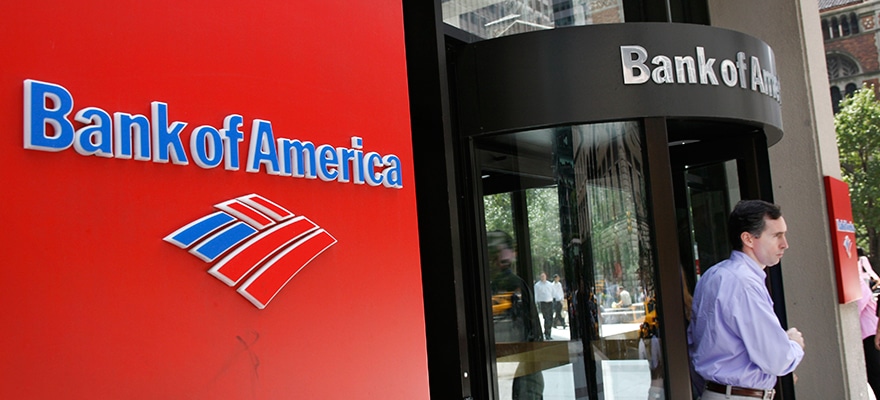Bank of America will have to pay a $30 million fine as part of an agreement to settle charges of attempting to manipulate a major benchmark interest rate, according to a statement by the US Commodity Futures Trading Commission.
The regulator said on Wednesday that traders attempted to manipulate the US dollar iteration of ISDAfix, or the International Swaps and Derivatives Association Fix, from January 2007 through December 2012.
The ISDAfix benchmark is widely used in setting payout rates on a range of interest rate products. The rates are also used to help value the cash settlement of options on interest rate swaps and other products. Pension funds and local governments often rely on products priced off the benchmark rate to help hedge against future interest rate changes.
In a statement, the explained that the ISDAFIX US dollar rate is quoted at 11 a.m. where the submitting banks are polled about the rate during a specific period and asked to submit estimates. An average is taken from the contributions, but during the polling window, banks can change their contributions, and thereby affect the published USD ISDAFIX.
Manipulating the Fix at 11:00 a.m.
According to the order, the CFTC said that , one of the panel banks which submitted rates that determined the daily US ISDAfix rate, tried to artificially move the rate through its trading at the 11:00 a.m. fixing in order to benefit cash-settled swaps held by the lender that were priced or valued against the benchmark.
The CFTC said that BoF’s traders employed two primary means in their attempts to manipulate the USD ISDAFIX to benefit their own positions.
The order further explains: “The Bank attempted to manipulate USD ISDAFIX by bidding, offering, or trading swap spreads and U.S. Treasuries at and around 11:00 a.m. to affect rates and thereby increase or decrease the Swaps Broker’s reference rates and spreads and influence the final published USD ISDAFIX; and by making false, misleading, or knowingly inaccurate submissions to Swaps Broker concerning swap rates and spreads.”
At the time, Bank of America didn’t have any internal controls to regulate how the submission should be made, a situation that the bank is now required to take specified steps to remedy.
The case against Bank of America is the latest in a series of broad investigations into the manipulation by of a variety of global benchmark rates. A number of banks have also resolved parallel criminal charges related to the manipulation of various global benchmarks.





Be First to Comment